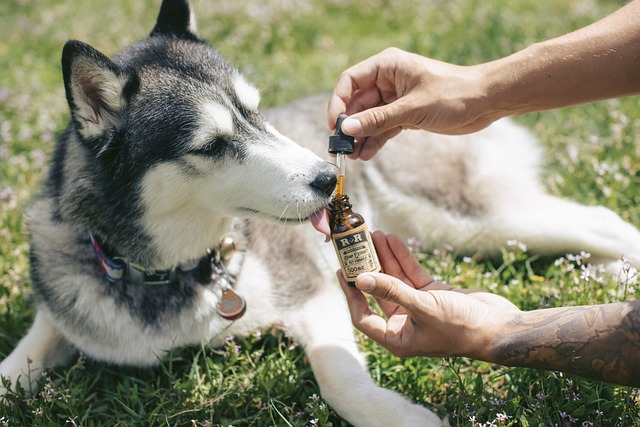In a strictly regulated CBD market, Heavy Metals Testing is key to long-term success. This process detects and eliminates harmful contaminants like lead, mercury, and cadmium in CBD products, ensuring consumer safety and product purity. Staying current with local laws and guidelines builds trust, demonstrates quality commitment, and fosters growth in the wellness industry. Advanced techniques such as ICP-MS provide accuracy in identifying these toxins, which can cause severe health issues even in trace amounts. Compliance with global standards like WHO, FDA, and EU regulations is crucial, driving demand for rigorous Heavy Metals Testing throughout production stages. Meticulous record-keeping and advanced testing methods are essential for maintaining integrity and avoiding legal issues. Investing in these practices enables CBD brands to thrive, gain consumer trust, and achieve long-term sustainability.
In today’s competitive and regulated CBD market, understanding compliance requirements is paramount for businesses aiming to ensure consumer safety and maintain a strong brand reputation. This comprehensive guide delves into the critical aspects of heavy metals testing as a cornerstone of CBD quality assurance. We explore the regulatory landscape, including key standards and players, and provide best practices for implementing effective quality control measures. By addressing common challenges and highlighting future trends in compliance, this article equips businesses with essential knowledge to navigate the evolving CBD industry successfully, especially regarding Heavy Metals Testing for CBD products.
Understanding Compliance Requirements for CBD Products

In the fast-growing market for cannabidiol (CBD) products, understanding compliance requirements is paramount to success and sustainability. One critical aspect that often takes center stage is heavy metals testing for CBD. This stringent testing process ensures that products are safe for consumption by verifying the absence of harmful contaminants such as lead, mercury, and cadmium. These heavy metals can infiltrate CBD oils and extracts through various stages of production, including cultivation practices and manufacturing equipment.
For CBD brands aiming to meet regulatory standards, implementing rigorous quality control measures begins with a comprehensive understanding of local laws and guidelines. As regulations vary across regions, manufacturers must stay updated on specific requirements, especially concerning heavy metals testing for CBD products. This proactive approach not only safeguards consumer health but also builds trust in the brand’s commitment to producing high-quality, safe, and compliant CBD offerings.
The Role of Heavy Metals Testing in CBD Quality Assurance

In the realm of Cannabidiol (CBD) production and quality assurance, Heavy Metals Testing stands as a pivotal process, ensuring product safety and purity. This meticulous analysis plays a crucial role in identifying any trace elements of heavy metals like lead, mercury, and cadmium that may be present in CBD products. Such contaminants can arise from various sources, including cultivation practices, extraction methods, and processing equipment. Given the sensitive nature of CBD consumers—often seeking natural remedies for health conditions—the absence of these potentially harmful metals is paramount.
Heavy Metals Testing for CBD involves advanced techniques such as Inductively Coupled Plasma Mass Spectrometry (ICP-MS), which offers exceptional sensitivity and accuracy in detecting even minuscule concentrations. This stringent testing method not only safeguards consumers but also builds trust among users, ensuring that their chosen CBD products meet the highest standards of quality and safety. In the dynamic landscape of wellness and nutrition, where consumer expectations continue to evolve, Heavy Metals Testing remains an indispensable tool for maintaining product integrity and upholding regulatory compliance requirements.
Why Heavy Metals Testing is Essential for Consumer Safety

Heavy Metals testing for CBD products is an essential step in ensuring consumer safety and maintaining the integrity of the product. Contamination by heavy metals, such as lead, mercury, and arsenic, can have severe health implications, even at low levels. These toxic metals are often invisible to the naked eye and may go undetected without proper testing procedures. Given that CBD products are gaining popularity for their potential health benefits, it’s crucial to guarantee they are free from these harmful contaminants.
The presence of heavy metals in CBD oil or other derivatives can occur due to various factors, including the growing environment, extraction methods, and storage conditions. Testing allows manufacturers to identify and mitigate these risks, ensuring that consumers receive a safe and effective product. By implementing rigorous Heavy Metals Testing for CBD, brands can build trust with their customers and comply with regulatory standards, setting a new benchmark for quality and safety in the industry.
Regulatory Landscape for CBD: Key Players and Standards

In the dynamic world of cannabidiol (CBD), understanding the regulatory landscape is paramount. The market for this non-psychoactive cannabinoid has witnessed exponential growth, driven by its diverse applications in wellness and health products. However, this rapid expansion has also led to a complex web of regulations that manufacturers, distributors, and consumers must navigate carefully. Key players in this space include international agencies like the World Health Organization (WHO) and local departments such as the Food and Drug Administration (FDA) and European Union (EU) regulatory bodies, which play a crucial role in setting standards and guidelines for CBD products.
One critical aspect that has gained significant attention is Heavy Metals Testing for CBD. Given the potential risks associated with heavy metals contamination, these testing procedures have become a cornerstone of quality assurance. Strict standards, such as those set by third-party laboratories, ensure that CBD products meet safety benchmarks. This includes rigorous screening for lead, mercury, and other toxic heavy metals, which are often invisible to the naked eye but can have detrimental effects on human health. By implementing these testing protocols, manufacturers not only protect consumers but also maintain their integrity in a rapidly evolving market where quality and safety are paramount.
Setting the Standard: Good Manufacturing Practices (GMP) for CBD

In the realm of cannabidiol (CBD) manufacturing, establishing robust standards is paramount to ensuring product quality and safety. Good Manufacturing Practices (GMP) serve as a cornerstone for CBD production, outlining essential procedures to maintain consistency and purity. One critical aspect within GMP guidelines for CBD is heavy metals testing. This stringent requirement underscores the need for meticulous attention to potential contaminants, especially in the cultivation and extraction processes.
Heavy metals testing for CBD products is an indispensable practice to safeguard consumers from adverse health effects. By implementing rigorous standards, manufacturers can ensure their products are free from harmful residues like lead, mercury, and cadmium. These metals, when present in significant amounts, may pose serious health risks. Therefore, adhering to GMP guidelines and incorporating comprehensive heavy metals testing into production flows is essential for fostering consumer trust and ensuring the overall integrity of CBD products on the market.
Implementing Effective Quality Control Measures for CBD Production

In the realm of CBD production, ensuring product quality and safety is paramount, especially with regulations demanding stringent standards. One of the critical aspects of quality control is implementing robust measures to prevent heavy metals contamination. This involves integrating comprehensive testing procedures at every production stage, starting from raw material sourcing to final product packaging. Regular Heavy Metals Testing for CBD ensures that the final product meets the required safety benchmarks, eliminating potential health risks associated with heavy metal exposure.
Effective quality control goes beyond compliance; it safeguards consumer well-being and fosters market trust. By adopting advanced testing methods, manufacturers can identify and mitigate any heavy metals presence, ensuring the purity and integrity of their CBD products. This meticulous approach not only enhances product quality but also serves as a competitive advantage in the market by appealing to health-conscious consumers who value safety and transparency.
Common Challenges in Ensuring Compliance for CBD Businesses

Many CBD businesses face significant challenges in maintaining compliance with regulations, especially as the industry continues to evolve and gain popularity. One of the critical aspects that often proves difficult is ensuring product safety through proper testing, particularly for heavy metals. This challenge stems from the fact that CBD products are derived from hemp, which, if not cultivated and processed correctly, can accumulate heavy metals due to soil contamination or industrial practices.
The presence of heavy metals in CBD oil or other hemp-derived products poses potential health risks to consumers. Therefore, regulatory bodies demand rigorous testing at various stages of production. Businesses must invest in advanced testing methods and equipment to detect even trace amounts of heavy metals like lead, mercury, and arsenic. Additionally, keeping up with ever-changing regulations and staying informed about the latest industry standards is essential to avoid legal pitfalls and maintain consumer trust.
Best Practices for Documenting and Maintaining Compliance Records

Maintaining detailed and accurate compliance records is paramount, especially in industries like CBD (Cannabidiol) production, where regulations surrounding Heavy Metals Testing are stringent. Best practices for documenting and maintaining these records involve creating a centralized digital system that allows easy access, storage, and retrieval of data. Each step of the testing process should be meticulously documented, from sample collection to lab analysis results.
Implementing consistent record-keeping protocols ensures that all relevant information is captured and preserved. This includes detailing testing methods, equipment calibration records, and quality control measures. Regular backups of digital records are essential, coupled with secure data storage solutions, to safeguard against potential loss or corruption. Such practices not only facilitate compliance with regulatory requirements but also foster transparency, enabling businesses to quickly address any discrepancies or non-conformities.
The Future of Compliance in the Rapidly Evolving CBD Industry

The rapidly growing and evolving cannabidiol (CBD) industry is facing increasing regulatory scrutiny, which presents both challenges and opportunities. As such, the future of compliance within this space is set to be a dynamic and critical aspect for businesses to navigate. With consumers becoming more aware of the potential health benefits of CBD products, the demand has skyrocketed, leading to a diverse range of products entering the market. This surge has resulted in regulators worldwide scrambling to establish standardized rules and guidelines to ensure consumer safety. One key area that is gaining significant attention is Heavy Metals Testing for CBD. As these essential elements can have detrimental effects on human health, rigorous testing methods are necessary to guarantee product purity.
To stay ahead of the curve, CBD brands must embrace innovative compliance strategies. This includes adopting advanced testing techniques to identify and eliminate heavy metal contaminants effectively. By prioritizing such measures, companies can ensure their products meet the stringent standards set by global health authorities. As regulations continue to evolve, businesses that invest in robust compliance practices will be well-positioned to thrive in this dynamic industry, gaining consumer trust and ensuring long-term sustainability.
